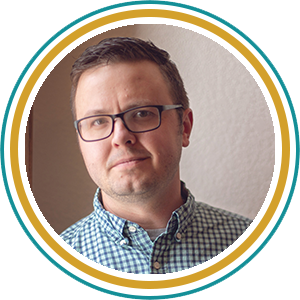As we have faced my wife, Elizabeth’s diagnosis, different versions of healing promises have popped up everywhere. We have been given several books that implicitly or explicitly make such claims. I have talked to people who struggle deeply with the fact that God hasn’t healed them yet. Some days, even I feel a nagging doubt in my own heart. Maybe I’m wrong and some theological error or deficiency of faith or undiscovered sin is preventing her cancer from being removed. The corrosive influence of such ideas can crush hearts already heavy with sadness. That’s why it is crucial to recognize the truth: While Scripture insists that God can heal, it never promises that he will.
But there is a deeper issue that lies behind these false promises. It has taken Elizabeth and me a long time to recognize it. An inappropriate hope in God’s healing isn’t just dangerous because it is untrue; it is also dangerous because it can prevent us from finding the real sources of hope that Scripture provides. When healing is where we place our confidence, we can make it our idol.
One of the greatest documents to come out of the Protestant Reformation is the Heidelberg Catechism, a series of questions and answers intended to instruct Christians on the core of their faith. The very first question in this catechism is, “What is your only comfort in life and death?” Here is the answer, a bit long but well worth pondering in full:
That I am not my own,
but belong with body and soul,
both in life and in death,
to my faithful Saviour Jesus Christ.
He has fully paid for all my sins
with his precious blood,
and has set me free
from all the power of the devil.
He also preserves me in such a way
that without the will of my heavenly Father
not a hair can fall from my head;
indeed, all things must work together
for my salvation.
Therefore, by his Holy Spirit
he also assures me
of eternal life
and makes me heartily willing and ready
from now on to live for him.[i]
You will notice that much of what Heidelberg says maps onto the pictures of God we have been exploring in these pages. We see God on the throne, preserving us and working all things for our salvation. God on the cross, suffering for our salvation. God’s presence with us in his Holy Spirit. His victory in the hope of eternal life. All these truths provide us with comfort “in life and in death,” a phrase that includes every stage of life but especially calls to mind the pain of its end.
None of that comfort is dependent on our circumstances. It does not say that God will fix my current situation, or heal my physical maladies, or give me a prosperous and pleasant life. But that isn’t because such hopes are too much for God—it is because they are too small. Our hope rests in God himself. All of his promises are true just as much in our suffering as in our successes. They provide resources for us regardless of our present conditions.

The great danger in seeking healing is that the healing can easily replace God as the object of our hope. He becomes a means to an end; a spiritual treatment regimen we use to get what we really want. By putting our ultimate hope in our circumstances, we have placed it on a shaky foundation. More than that, we are often revealing the ways our hearts are captive to idols. As understandable as it is to desire the end of sorrow or the removal of disease, when we set our ultimate hope on something within this world, of necessity we aren’t fixing it on Jesus. We are worshiping a created thing instead of the Creator.
None of that is meant to say that grief is wrong. There is an appropriate affection we should have for the things of this earth. Loved ones, health, and security are all good, and it is appropriate to weep when they are snatched away. However, they will all ultimately be taken from us, if not now, then later. The Lord alone will endure.
Perhaps the best way to think about healing is as a subset of how C. S. Lewis discusses the idea of hope in general:
“Aim at Heaven and you will get earth ‘thrown in’: aim at earth and you will get neither.”[ii]
Lewis’s point is that we can either fix our hope on God or on something else. Hoping in God doesn’t mean we don’t enjoy good things in this life. God is large enough to include all our desires as creatures, including our desire for healing. We can address our desires to him, and perhaps he will fulfill them in this life, and perhaps he will save the restoration for the age to come. However, when we instead aim at one of those desires, we lose two things at once. We lose God, because we cannot serve two masters (Matthew 6:24). At the same time, we lose the thing we are chasing. Either now or later it will be taken from us, and without God as the foundation, we will be destroyed.
So, hope for healing, and pray for it, but be very careful it doesn’t become what you are hoping in. Aim at the Lord and you will find him, and healing besides, whether in this life or in the resurrection. Aim for the healing, though, and you will find yourself in the end with nothing that endures.
Taken from Either Way, We’ll Be All Right: An Honest Explanation of God In Our Grief by Eric Tonjes. Copyright © 2021. Used by permission of NavPress. All rights reserved. Represented by Tyndale House Publishers, Inc.
Sources
[i] “The Heidelberg Catechism,” Canadian Reformed Theological Seminary, accessed August 3, 2020, http://www.heidelberg-catechism.com/en/lords-days/1.html.
[ii] C. S. Lewis, Mere Christianity (New York: HarperCollins, 2001), 134.




Hello I have no idea why this suddenly popped up in my emails! Surely God! I have just lost my precious husband of 55 years to cancer. We chose to believe for healing – we prayed, we believed, we trusted, we stood on the Word, we refused to be negative in thought, word and deed. We claimed the promises, we lived the Word, we fought the enemy with the Word, etc, etc, etc, yet my loved one died. We were even robbed of saying ‘ goodbye’ or talking heart to heart because we wouldn’t accept death or even the dying process. We believed God was bigger, yet he died. The grief and sadness of him dying intermingled with the desperate sadness and disappointment that the Word had failed us. .I continue on this journey with great sadness yet stiill choosing to trust and still leaning on His Word. I must admit to a ‘ wariness’ of God Himself! How amazing to receive your email and how uplifting and encouraging to read the mistakes we were making in our ‘ belief system’ I now understand and can let go and make God my total focus and accept that He is….. Thank you Pastor Tonjes, you have truly been used of God this day, Blessings from Delise Scoates, Australia —
Delise, First, I am so sorry for the loss of your life partner of 55 years. May God be near to you as you grieve. I wanted to let you know that NavPress has a four-week email “Journey through Grief” led by Pastor Eric right now. Here is the link if you would like to join. http://www.navpress.com/sites/journeythroughgrief/
Pastor Eric will also host a webinar titled “Three Encouragements As You Grieve” and you can register for that: https://www.workcast.com/register?cpak=6196119070567482.
Both of these resources are free. The webinar will be on-demand if the time doesn’t work for you in Australia.